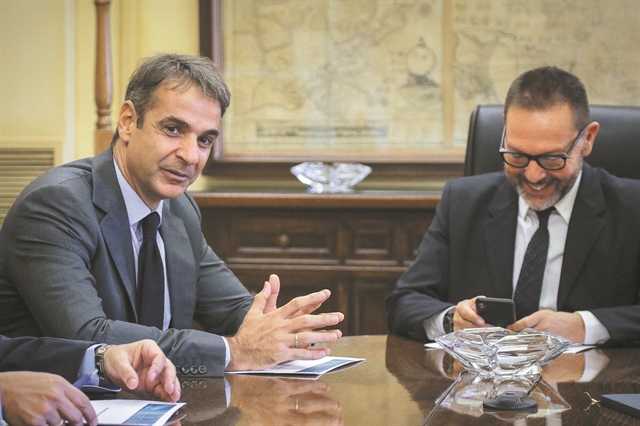
“Now is the time to do it all.” This phrase – the gist of the recent meeting of the Prime Minister Mr. K. Mitsotakis with the Governor of the Bank of Greece Mr. I. Stournaras, on Holy Monday – summarizes the policy of the government of the coming months.
“We can achieve a robust recovery”
The impetus for a dynamic shift in the economy was provided by the successful, at times particularly uncertain, increase of the share capital of the long-suffering Piraeus Bank by approximately 1.4 billion euros and the certainty that the Recovery Fund now functions as a strong and internationally accepted guarantee for the upcoming renaissance of the Greek economy.
Mr. Mitsotakis, after reviewing and evaluating the domestic and international economic conditions with Mr. Stournaras, now states confidently that after the pandemic “we can achieve a robust recovery”, “capable of changing the entire structure of the Greek economy” and create the conditions for a strong ten-year growth leap.”
The Prime Minister, although he does not hide the weight of the current pandemic period, acknowledging that May will be a difficult month, firmly believes that “the health adventure, mainly through mass vaccinations, is coming to an end” and further estimates that “both society as well as the economy are now moving out of COVID-19 “, show, or rather, behave as if they have overcome any negative impact of the pandemic phenomenon and the dangers that it carries.
The government, insisting on full control of the health crisis, will undertake a dynamic reform shift in order to make the most of the Recovery Fund opportunities.
Reform shift
Based on these estimates, the government, insisting on the absolute control of the health crisis, will attempt a dynamic reform shift in order to make the most of the Recovery Fund opportunities, but also to take advantage of the endless financial possibilities currently offered by international markets, as proven by the easy over-coverage of the share capital increase of the most difficult Greek case.
The CEO of Piraeus Bank Chr. Megalou does not hide the fact that all the previous period he had engaged in a struggle to inform international investors exactly about the possibilities and opportunities offered by the Recovery Fund to the Greek economy. And he believes that many were judged by the reliability of this pan-European tool, but also by the bank’s plan for rapid impairment of non-performing loans.
When Mr. Megalou and the financial advisor of the Prime Minister Mr. Al. Patelis was inspired by the nationalization and rapid revitalization plan of Piraeus Bank, everything seemed precarious and dangerous. The result now showed the correctness of the choice. At this moment, Piraeus Bank has acquired the funds and the time it needed to unfold its ambitious consolidation plan, within the next twelve months.
Market financing
The systemic risk has subsided and other banks can also draw more resources from international markets to make it easier to finance the private investment projects envisaged by the Recovery Fund, but also the economy as a whole. Mr. F. Karavias of Eurobank has already taken the first step by raising about 500 million euros with an interest rate of only 2% from the international market, while Mr. V. Psaltis of ALPHA BANK is preparing his own plan to strengthen the bank. The aim of all of them is to consolidate quickly and to be endowed with sufficient funds, in order to start playing their main role again, which is none other than that of business financing and investments.
The Governor of the Bank of Greece believes that after the successful venture of Piraeus and the unexpected upgrade of the Greek economy by S&P, there is a great opportunity for the State, banks and companies “to shield themselves, raising significant funds from the markets on absolutely advantageous terms, with almost zero interest rates “. He adds with emphasis that “we have one year until March 2022, to take advantage of the opportunities offered by the European Central Bank and international markets, in order to adequately and cheaply finance our economy.” According to Mr. Stournaras, “the environment is suitable for large moves” and estimates that “it can become more favorable if the estimates for a rapid recovery in 2021 and 2022 are confirmed”. That is why he urges the government to “unfold the reforms now” in order to further strengthen the post-pandemic effort to rebuild and reorganize the country.
With a foot on the gas pedal
The Prime Minister, for his part, commends the plan tendered on Holy Tuesday to Brussels, a Greek plan for the Recovery Fund, considers its proposals realistic and costly and firmly believes that it creates the conditions for the claimed growth leap. That is why he pays tribute to the Deputy Minister of Finance, Mr. Th. Skylakakis, and seems to have fully absorbed the idea of accelerating everything, especially the reforms that support and strengthen his forecasts.
Mr. Mitsotakis considers the situation particularly favorable as the high public debt does not pose a threat and we are not expected to return to austerity policies. He also argues that the political dangers have almost vanished, the opposition has difficulty understanding the situation and therefore its influence, as shown in opinion polls, remains limited and incapable of raising major issues or forming important areas of controversy. He further states that he is committed to the work of post-pandemic reconstruction and will not be tempted by early elections, but will use the time at his disposal to reorganize the country.
Crucial bills in Parliament
Thus, the PM does not hide that in the next period, after the Easter holidays, critical bills will come to Parliament for consultation and voting, such as the labor bill and the one introduced by the capitalization system in supplementary pensions. Mr. Mitsotakis considers the criticism of the main opposition party for the changes in the labor force groundless, as he considers the labor market unregulated and de facto disorganized during the years of the great economic crisis and notes the need to face modern challenges, such as telework and of disconnecting home workers from computers. He also estimates that the capitalization system that will be offered as an option to new employees will immediately lead to an accumulation of savings funds which will be invested, with principles and rules, in the Greek economy and will add opportunities to try to fill the investment gap.
The tool we did not have…
It is clear from the above that the Prime Minister is trying to make combined use of the post-pandemic conditions in order to maximize the result. The PM supports the Recovery Fund, as he sees it as the tool we did not have and acquired because of the pandemic, and wants to make it more attractive through reforms and at the same time accelerate the consolidation of banks in order to regain their role, take risk again and be able to adequately finance growth, in particular to reconnect with the thousands of small and medium-sized enterprises that have survived on their own resources and forces all these years, as they have been excluded from the near-bankrupt banking system. This is the sequence of choices and this post-pandemic pattern of government policy. It remains to be seen whether he will adhere to it with due consistency and whether he will bring the expected results.
Latest News

Economist: Greece Included in the Best Performing Economies in 2024
Meanwhile, Northern European countries disappoint, with sluggish performances from the United Kingdom and Germany.

EasyJet Expands Its Routes from Athens
The airline’s two new routes will be to London Luton and Alicante and they will commence in summer 2025.

Capital Link Forum Highlights Greece’s Economic Resurgence; Honors BoG Gov Stournaras
Capital Link Hellenic Leadership Award recipient, Bank of Greece Gov. Yannis Stournaras, an ex-FinMin, was lauded for his pivotal role during Greece’s economic recovery

Tourist Spending in Greece Up by 14%, Visa Card Analysis Shows
Greece’s capital Athens emerged as the most popular destination, recording a 17% increase in transactions with Visa cards, surpassing even the cosmopolitan island of Mykonos.

Inflation in Greece Unchanged at 2.4% in Nov. 2024
The general consumer price index (CPI) posted a 0.4% decrease in November compared to the previous month

2024 Christmas Holidays: Extended Shop Hours Schedule
The 2024 Christmas Holidays extended shop hours schedule commences on Thursday, December 12 and runs until the end of the year.

ELSTAT: Seasonally Adjusted Unemployment Down in October
The number of employed individuals reached 4,284,694, an increase of 67,723 compared to October 2023 (+1.6%) and 22,002 compared to September 2024 (+0.5%).

Greek PM’s Chief Economic Adviser Resigns
In the post on his Facebook page, Patelis did not disclose the reasons that led him to step down.

“Masdar Invests in the people of Greece and in the vision of TERNA ENERGY”
Four messages from the CEO of Masdar, the Arab renewable energy giant, after its acquisition of 70% of TERNA ENERGY

Lloyd’s List Greek Shipping Awards 2024: Honors for leading companies and personalities in the Greek shipping sector
20 awards presented at the 21st annual Lloyd's List Greek Shipping Awards


















![Χειμερινή εξοχική κατοικία: Οι Ελληνες γυρνούν την πλάτη παρά την πτώση των τιμών [γραφήματα]](https://www.ot.gr/wp-content/uploads/2024/12/Capture-19-90x90.jpg)







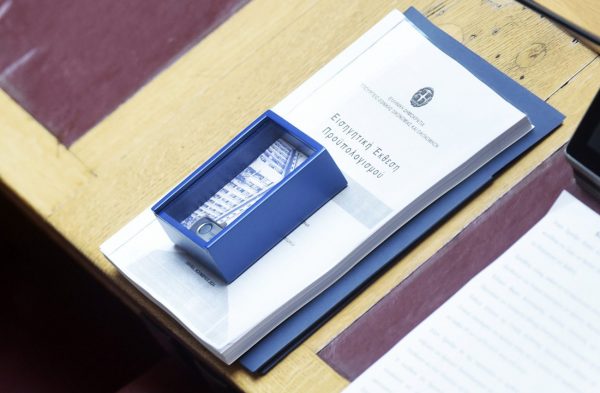

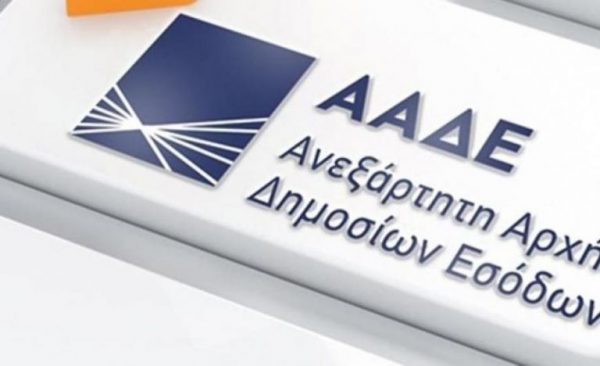



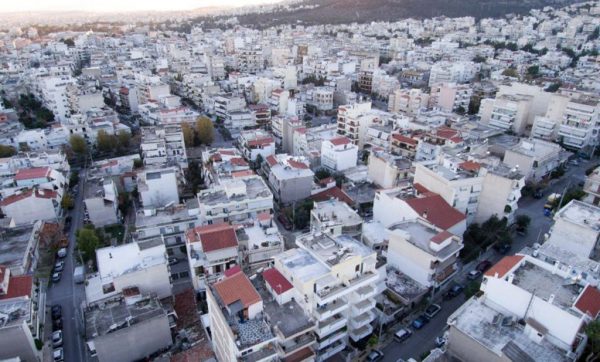

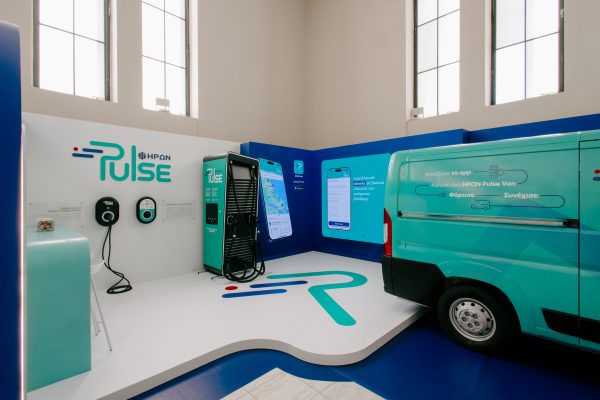







 Αριθμός Πιστοποίησης Μ.Η.Τ.232433
Αριθμός Πιστοποίησης Μ.Η.Τ.232433